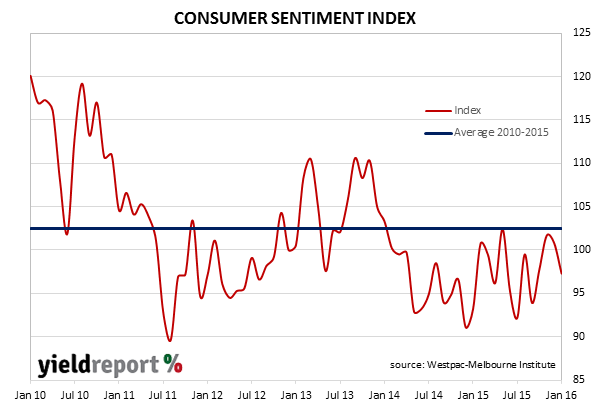Falling share markets and an oil price which has not translated into lower petrol prices seems to have had an effect on consumer confidence according to the latest consumer sentiment index reading. The Westpac-Melbourne Institute Index of Consumer Sentiment fell to 97.3 in November from the December recording of 100.8. The fall in the index indicates a decrease in the ratio of optimistic consumers to pessimistic consumers and it is a continuation December’s fall. A reading above 100 means there are more positive responses from people in the survey than negative ones.
The domestic bond market took the report in its stride and yields continued their intraday upward trend. The 3 year bond futures yield rose 3bps to 1.90% while the 10 year bond futures yield also rose 3bps higher in afternoon trading.
Bill Evans, Westpac’s chief economist said, “With limited domestic news during the holiday season consumers appear to have been mainly impacted by the spate of negative news on the international front and the spill over effect on financial markets.” Westpac is still of the view the RBA will keep the official rate at 2.00% through 2016. The lower exchange rate has provided an “important ongoing boost to Australia’s competitiveness which is now assisting the economy’s adjustment as the mining sector slows.”


